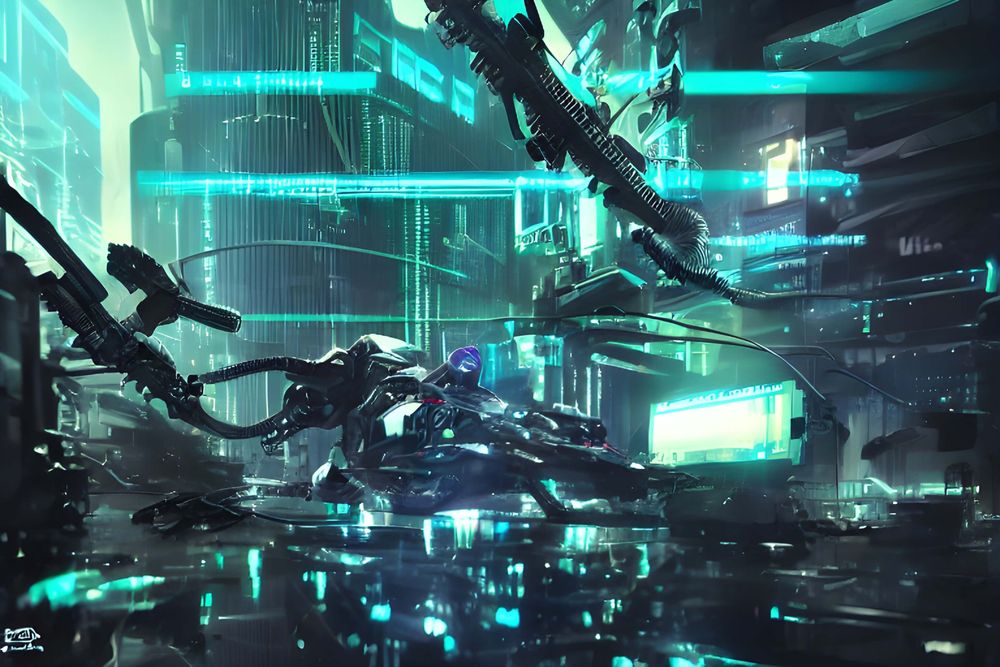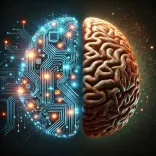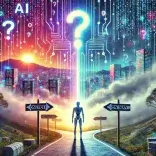The Intersection of Cyberpunk and AI in the Internet Age

The Origins of Cyberpunk
Cyberpunk emerged as a subgenre of science fiction in the 1980s, characterized by its focus on a dystopian future where advanced technology coexists with societal decay. Influenced by noir and punk aesthetics, cyberpunk narratives often revolve around themes of corporate dominance, urban sprawl, and the empowerment of marginalized individuals through technology. Works like William Gibson's "Neuromancer" and Ridley Scott's "Blade Runner" epitomize the genre, portraying worlds where humanity grapples with the consequences of its technological prowess.
The Rise of AI
At the heart of many cyberpunk narratives lies the proliferation of artificial intelligence. In the real world, AI has evolved from a speculative concept to a pervasive force shaping various aspects of our lives. From virtual assistants like Siri and Alexa to sophisticated algorithms powering recommendation systems and autonomous vehicles, AI permeates our digital existence. This rapid advancement raises profound questions about the nature of consciousness, autonomy, and the ethical implications of creating intelligent machines.
The Internet as a Cyberpunk Playground
The internet serves as the quintessential backdrop for cyberpunk narratives, reflecting its dual nature as a tool for liberation and control. On one hand, the internet empowers individuals to connect, create, and disseminate information on a global scale. Social media platforms, online forums, and decentralized networks enable grassroots movements and subversive activities, echoing the hacker ethos celebrated in cyberpunk lore.
On the other hand, the internet also serves as a battleground for corporate interests, government surveillance, and cybercriminal activity. Mass data collection, algorithmic manipulation, and cyber warfare underscore the darker side of our digital interconnectedness. As AI algorithms become increasingly adept at predicting and influencing human behavior, the line between personal freedom and algorithmic control blurs, mirroring the dystopian visions of cyberpunk fiction.
Ethical Dilemmas and Societal Implications
The proliferation of AI in the digital realm raises complex ethical dilemmas that echo the moral quandaries explored in cyberpunk literature. Questions of privacy, consent, and autonomy take center stage as AI-driven technologies encroach upon every aspect of our lives. The commodification of personal data, the erosion of privacy rights, and the widening gap between technological haves and have-nots mirror the social inequalities depicted in cyberpunk narratives.
Moreover, the advent of AI exacerbates existing societal tensions, amplifying issues of inequality, surveillance, and corporate control. As algorithms dictate our online experiences, filter bubbles reinforce ideological divides, leading to social polarization and echo chamber effects. The erosion of trust in institutions and the manipulation of information further undermine the fabric of civil society, echoing the dystopian visions of cyberpunk fiction.
The convergence of cyberpunk themes and the rise of AI in the internet age offers a compelling lens through which to examine the complexities of our digital reality. As technology continues to advance, the boundaries between the speculative and the tangible blur, challenging us to confront the ethical, social, and existential implications of our digital existence. By embracing the spirit of cyberpunk, we can navigate this brave new world with a critical eye and a cautious optimism, striving to harness the power of technology for the betterment of humanity.
This article offers an exploration of the intersection between cyberpunk themes and the rise of artificial intelligence in the internet age. It examines the origins of cyberpunk, the proliferation of AI, the internet as a cyberpunk playground, ethical dilemmas, and societal implications. Through this analysis, readers gain insights into the complexities of our digital reality and the challenges and opportunities it presents.





